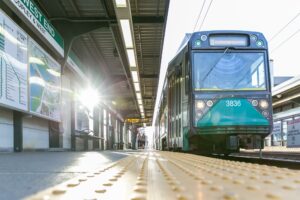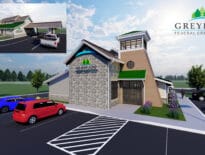The Senate will not take up a House-approved, half billion-dollar package of transportation tax and fee increases this lawmaking session, instead focusing attention on an omnibus borrowing bill that the Senate’s Transportation Committee chairman believes can be fully funded without new revenues.
Sen. Joe Boncore, who like House Speaker Robert DeLeo lives in Winthrop, told the News Service that the $16.9 billion transportation bond bill that will hit the Senate floor next week will be the only major legislation his branch considers on that topic before the July 31 end of formal sessions for 2020. The bill provides money for several big-ticket projects already underway like the purchase of new fleets of Red and Orange Line cars for the MBTA, South Coast Rail and the Green Line Extension. The bill also includes money to find solutions to local traffic bottlenecks and expand the use of bus rapid transit and $330 million to invest in the state’s regional transportation authorities, which operate buses outside of the MBTA service area.
The borrowing bill addresses the Senate’s main policy and capital spending goals for transportation, Boncore said, adding that the multibillion-dollar budget shortfalls created by the COVID-19 pandemic pushed any tax hikes this year off the table.
“This COVID crisis has created a really unpredictable revenue situation for the commonwealth, and it’s shifted, I think, the conversation from a discussion that was isolated to transportation improvement to a broader debate on what the state needs as a whole for revenue going forward,” Boncore said.
“When the long-term economic outlook becomes clear and we can better assess what the state needs as a whole, post-COVID, then we can begin the conversation again about what revenues we’ll need,” he added.
The Senate’s decision effectively kills any chances of final action in the 2019-2020 session toward generating new funding from transportation sources – which would have included the first state gas tax increases since 2013 – and directing it toward an aging transit system, suffocating congestion and crumbling infrastructure.
If they still wish to pursue more transportation revenue, an area that had been one of the most high-profile topics on Beacon Hill until the virus hit, lawmakers must start the process again from scratch next year.
One day before it approved its own version of an $18 billion borrowing bill in March, the House passed a bill authorizing hikes to the state’s gasoline and diesel taxes, corporate minimum excise tax and ride-hailing fees as well as applying the sales tax to purchase of rental cars.




 |
| 


